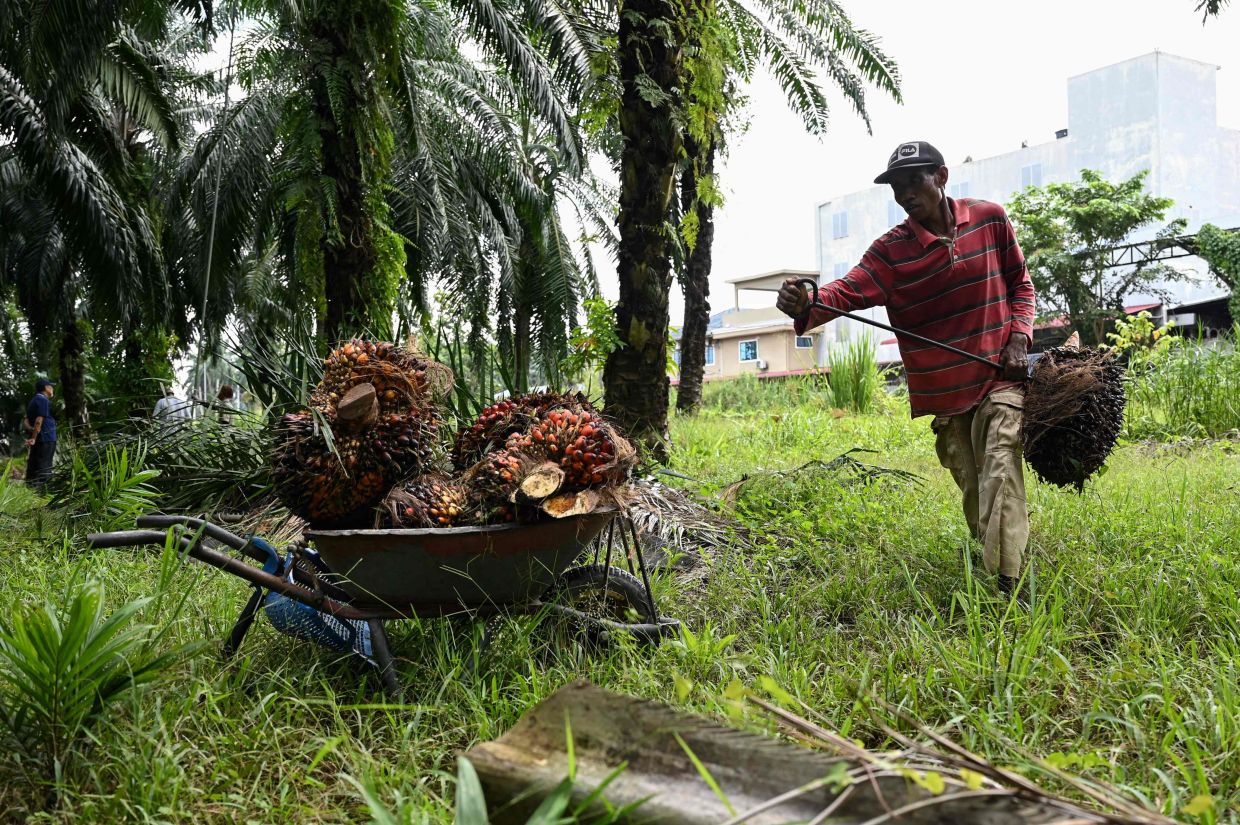Malaysia: Local exporters should ‘improve’ transparency
PETALING JAYA: Following the European Commission’s (EC) recent proposal to ban all products made using forced labour, Malaysian companies that export their goods to the European Union (EU) need to improve the transparency in their supply chain.
This can be achieved through investing in key tools to identify whether or not there is a risk of forced labour, according to CGS-CIMB Research in a report detailing the Employees Provident Fund’s (EPF) expectations of its investee companies in terms of environmental, social and governance (ESG) practices and timeline.
“Plantation, glove and electronics manufacturing and services (EMS) sectors that have been subjected to allegations of forced labour will likely have to step up their labour audits to ensure there is no forced labour in their operations when the rule comes into effect,” said the research firm.
It noted that 11% of Malaysian palm oil products were exported to the EU in 2021.
Last Wednesday, the EC proposed an EU ban on products made using forced labour with legislation.
The proposal covers all products, namely those made in the EU for domestic consumption, exports and imported goods, without targetting specific companies or industries.
The EU proposal highlights the 27.6 million people the International Labour Organisation (ILO) said were engaged in forced labour in 2021. This was 11% more than in 2016.
Now, the EC proposes national agencies in the 27-member EU to establish if forced labour had been used to make a product. The commission will then publish its decisions on a website to guide customs authorities.
According to reports, the commission will also issue guidelines within 18 months from the entry into force of this regulation.
CGS-CIMB Research said it estimates the proposals are likely to be implemented at the earliest in two years’ time – that is in late-2024 or 2025, and there could be changes to the proposals before it is agreed to by the EU Parliament and its members.
In Malaysia, the research firm notes that the EPF’s Sustainable Investment Priority Sector Policies aim to address material ESG issues specific to the sector.
CGS-CIMB Research said this was beyond the scope of the climate change and workers wellbeing policies, but are additional yardsticks for the fund to achieve its target of having a fully ESG-compliant portfolio by 2030 and a climate-neutral portfolio by 2050.
“The policies set expectations covering both existing and new investments, and are applicable to six sectors – palm oil, oil and gas, mining, power generation, construction and banking,” it added.
According to CGS-CIMB Research, companies that are part of EPF’s priority sectors should strive to meet the expectations listed in the policies.
It said the EPF plans to implement the Priority Sector Policies in phases and adopt a comply-or-explain approach, where by 2024, new and existing investee companies are expected to meet the core requirements expectations stated in the policy.
In the medium term or by 2026, best practice will evolve into core requirements expectation.
By 2028, new and existing investee companies are expected to meet all expectations tailored to their respective sectors, it added.
Companies that fail to meet the requirements, said the research firm, will be subject to the EPF’s intervention such as proxy voting and regular dialogues on ESG progress.
The fund could also undertake a gradual divestment over time to reinforce its stance on ESG matters or a full divestment of its equity ownership from the company.
Source: https://www.thestar.com.my/business/business-news/2022/09/20/local-exporters-should–improve-transparency


 English
English




